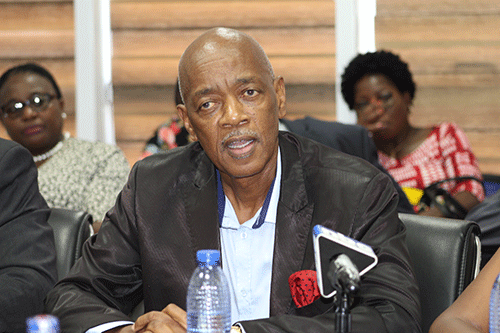When we buried a dear brother and fellow Pan Afrikanist, Bankie Foster Bankie, on 1 August 2017, a certain Glenory Whatson from the UK said something that has stuck with me forever, namely: “I don’t remember a day in my life when I was not a Pan Akrikanist.” I can as well say, I do not remember a day in my life when I was not a supporter of Brazil’s national soccer team, aka the Samba Boys.
Actually, I do not know anyone from my generation, especially those who attended my beloved alma mater, the Augustineum High School in the 60s and 70s, who did not support Brazil.
Having won the trophy five times, Brazil remains the most successful team in world cup history. As we were growing up, Brazil losing at the world cup was just unimaginable.
Many people may not be aware that the largest number of people of African descent in any country outside the African continent are Brazilians; that in itself is a strong Pan Afrikanist statement.
When Brazil locked horns with the Croatian national soccer team last Friday, I was caught in conflicting emotions. On the one hand, Brazil has always been my favourite team, and on the other hand, I have a soft spot for Croatia. I was educated in the former Yugoslavia and Croatia was part of the Yugoslav Federation; hence my soft spot for that country. After a zero-zero draw, the game was forced into extra time. Brazil was the first to draw blood through a classical Neymar goal, which the commentators described as perhaps the best goal of the tournament. It was said to be Neymar’s 77th goal for Brazil, putting him at par with the legendary Pele, although the Brazilian Football Confederation insists that Pele’s record stands at 95.
Five minutes from time, Bruno Petkovic equalised for Croatia to take the game to penalties, which Croatia won 4-2 and knocked Brazil out of the tournament in a sensational style.
The Croats had a rock solid defence and they were defending as if they were defending Zagreb (their capital), to borrow a phrase from the late iconic Zambian soccer commentator, Denis Liwewe.
For my generation, the youth of the 70s or the children of the storm, as Bob Kandetu would say, to support Brazil was a given. It was not a question of choosing between Brazil and another team; it was only Brazil. In those years, African teams hardly made it to the world cup; Brazil was one of the few teams with most players of African descent in their squad.
The same goes for boxing, it was not a question of choosing between Muhammed Ali and another boxer; it was only Ali. Ali was not only a heavy weight boxing sensation, but he was also very poetic and a vocal activist of note when white racism was very prevalent in the US.
As young people growing up in colonial Namibia, the star-studded Brazilian national soccer team, whose members have always been mainly black, was a team we could relate to emotionally.
Wearing jersey number ten was of course the man himself, Edson Arantes do Nascimento, aka Pele. During our time he was known as the king of soccer and no wonder, FIFA voted him the best player of the last century, together with the late Diego Maradona of Argentina. Other outstanding Brazilian players from that golden generation were: the maestro holding midfielder and my namesake Gerson or Canhotinha de ouro (golden left foot); Jairzinho, the powerful right winger with a lethal boot; left winger Rivellino (also known as the king of “banana” kick or curve kick); and of course Tostao in jersey number nine, perhaps the best centre forward of his time. With Gerson in the center of the pitch, the two dangerous wingers and the Tostao-Pele striking combination, you could not have a better machine than that. Need I say that in the seventies, the Samba Boys had most of the other national teams for breakfast.
I remember how, as young people, we used to idolise the heavy weight boxing sensation Muhammed Ali and the Brazilian legend, Pele. This was even before we became politically active. Their individual achievements were at the heart of Pan Afrikan imagery representation. In other words, we could relate to their success stories as black people, during the years when the black race was, by and large, degraded globally.
We saw the success of Muhammed Ali and Pele and by extension, his team mates, as a ‘mirror’ of our collective hopes and dreams. Their stories, when cast in a broad context, were seen as a collective Pan Afrikan success narrative.
When I visited Johannesburg for the first time after Apartheid was dismantled, I made it a point to visit Soweto and when I went to New York in 2005 I also went out of my way to visit Harlem. Someone who does not share the collective experience of people of African descent may ask, what is the big deal about that? My answer is that both Soweto and Harlem represent a collective frame of reference for black history, black resistance and black identity in more ways than one; for me both visits were a cultural reconnection of sorts. For most people of my generation, the Brazilian national soccer team represents a cultural reconnection.
I was hoping against hope that the current crop of Brazilian players would do it for Pele, who is currently fighting for his life; it was not to be.
Every time Brazil is knocked out of the world cup, something in me dies.
To the family of Pele and the Brazilian people, my parting shot is: long live the king, the king is dying.


